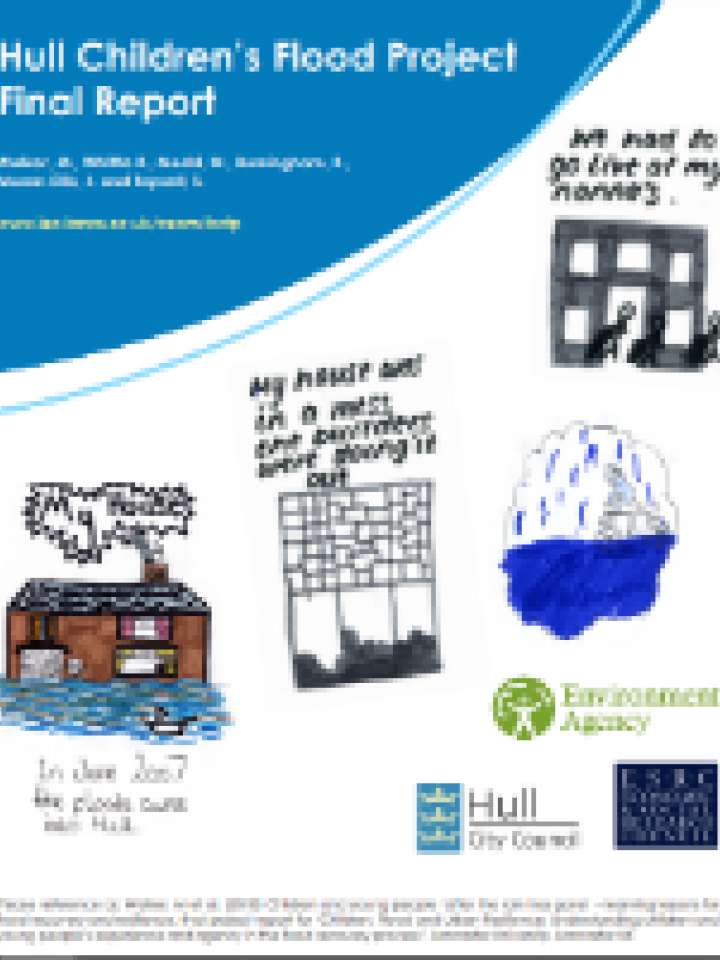Hull Children’s Flood Project (2007-2011)
This report, conducted by the University of Lancaster in collaboration with other institutions, details the findings from a participatory research project that set out to identify key issues in children and young people’s experience in relation to resilience to flooding and the flood recovery process following the 2007 Kensington-upon-Hull flood, which affected 8600 homes and overwhelmed the city’s drainage system.
The report establishes that the floods had several effects on children’s well-being:
- The children who were flooded at school and at home experienced extra pressures in coping during the recovery process. Hull is also characterised by high levels of socio‐economic deprivation and many of the children came from low income households, which had a further impact on the family’s ability to recover.
- The children’s experiences changed over time; at the start of the flood it was exciting for some of them, but this exhilaration quickly subsided.
- The children’s positive and negative coping strategies and the subsequent changes that the flood brought to their lives are linked to how their parents and teachers reacted.
- Some older children were ‘forgotten’. The data reveal a recovery gap particularly amongst the adolescents.
The report suggests that policymakers should focus more on recovery experiences and how children will be supported at school and home, while parents should do more to include rather than exclude their children during recovery. The education system and service workers should further consider long-term recovery processes and address concerns of all children regardless of age. Ultimately, children must have a voice in building future resilience, which can be facilitated through storyboards. More needs to be done to enable research to be commissioned quickly in the aftermath of disasters.

